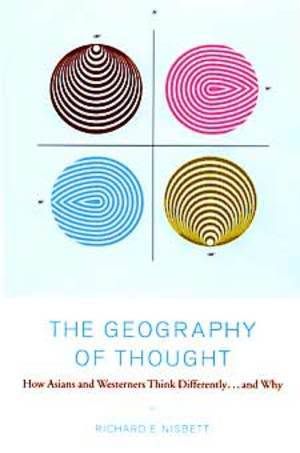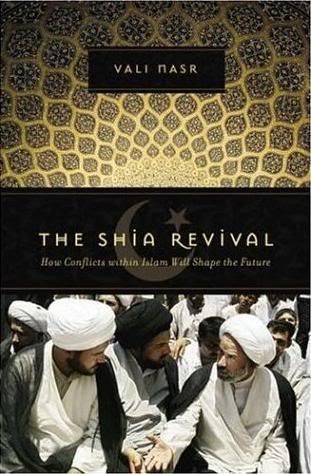A very cool visual showing the federal budget and what departments get how much funding. Numbers don't lie and US priorities are clear to see.
Monday, January 14, 2008
Wednesday, January 9, 2008
2008 Geopolitical Forecast
There are three major global processes under way that will continue to work themselves out in 2008. First, the U.S.-jihadist war is entering its final phase; the destruction of al Qaeda’s strategic capabilities now allows the United States to shift its posture — which includes leveraging the Sunni world to finish the job begun in Iraq — and enables Washington to begin drawing down its Middle Eastern forces. Second, an assertive Russia is re-emerging and taking advantage of the imbalance in U.S. power resulting from the war. Third, oil at historical highs and continued Asian — particularly Chinese — exports have created a massive redistribution of financial might that is reshaping the international financial architecture. These processes intersect with each other, as well as with a fourth phenomenon: It is a presidential election year in the United States, which remains the center of gravity of the international system. These are the trends that shape our global forecast. Read the full summary here.
Posted by
Alex Taylor
at
2:44:00 PM
0
comments
![]()
Labels: Geopolitics, Intelligence
"You Will Explode In A Couple Of Minutes"
With the recent event involving Iranian speedboats threatening US Naval ships, it would be good to understand the Iranian naval strategy. Fariborz Haghshenass, for the Washington Institute for Near East Policy, put out a piece on Iran's Doctrine of Asymmetric Naval Warfare.
Posted by
Alex Taylor
at
1:14:00 PM
0
comments
![]()
Labels: Geopolitics, Iran, Military
Monday, January 7, 2008
Differences between Eastern and Western culture
 Click here and find out the distinctions between East and West thinking through simple, witty graphics. If one is more interested in finding the psychological reasoning behind the two types of thought, I would recommend reading The Geography of Thought: How Asians and Westerners Think Differently...and Why.
Click here and find out the distinctions between East and West thinking through simple, witty graphics. If one is more interested in finding the psychological reasoning behind the two types of thought, I would recommend reading The Geography of Thought: How Asians and Westerners Think Differently...and Why.
Many people have even examined the differences of Eastern/Western culture and psychology through two classic board games, Go (Eastern origin) and Chess (Western origin). Go is a much more holistic, strategic game, starting with a blank board and building up "territory". Whereas Chess is seen as a more linear, tactical game, striving to accomplish one goal, capture the King. By analyzing the game Go, the West can have a significant insight in Eastern strategy which can be used for diplomacy, trade, and even war.
Posted by
Alex Taylor
at
8:18:00 PM
3
comments
![]()
Labels: Geography, Psychology
Friday, January 4, 2008
The Shia Revival
Many times when reading about the Middle East and Islamic studies I find the books to be, well, dry. *cough* Bernard Lewis *cough* But being almost finished with The Shia Revival: How Conflicts within Islam Will Shape the Future, I have to say this is one of the exceptions. The book focuses on the formation, spread, and effects of Shia Islam throughout history. Nasir does an excellent job of writing about the particular differences between Shia and Sunni Islam without being bogged down in minutiae. Even if one has little interest in Middle Eastern Studies, I would still recommend taking a gander at this invaluable resource.
Posted by
Alex Taylor
at
5:27:00 PM
0
comments
![]()
Labels: Geography, Middle East
Iran Meets Pakistan Over IPI Pipeline Project
Islamabad, (PTI): Iranian Foreign Minister, Manouchehr Mottaki, on Friday met his Pakistani counterpart Inam-ul Haque and both the leaders reviewed progress in the multi-billion dollar gas pipeline project, in which India is the third party. The two foreign ministers reviewed progress in talks about the Iran-Pakistan-India gas pipeline, officials said. Recently, Iran and Pakistan held talks in Tehran, without India's participation, to finalise crucial agreements for the project.
Musharraf, during meeting with Mottaki, backed Iran's efforts to make peaceful use of atomic energy and opposed the use of force to resolve the issue of its nuclear programme. |
Posted by
Alex Taylor
at
4:40:00 PM
0
comments
![]()
Labels: Geopolitics, Iran, Oil, Pakistan
Thursday, January 3, 2008
US-Pakistan Policy Post Bhutto
Bruce Riedel, a former CIA official and key South Asia policymaker in the 1990s, told CFR.org he believes Bhutto’s assassination was intended to destabilize Pakistan. “Her death brutally exposes how little success Pervez Musharraf has had in cracking down on the jihadists,” writes CFR Senior Fellow Max Boot in Commentary’s blog. “They have only grown stronger on his watch.” The U.S. Congress, too, has questioned the effectiveness of nearly $10 billion in aid to Musharraf in the war against terrorism. Last week, it imposed new restrictions (AP) on U.S. assistance to Pakistan. According to Manjeet Kripalani, BusinessWeek’s Bombay bureau chief, U.S. influence in the country is likely to diminish. “Bush's continued focus on extremists in Pakistan, rather than on reform of the Pakistani military, is likely to create more muddled policy,” she writes. |
Posted by
Alex Taylor
at
2:07:00 AM
0
comments
![]()
Labels: Geopolitics, Pakistan
The Hindus are moving into Iran
The Azadegan oil field may hold reserves of as much as 40 billion barrels, he said. “Our first round of discussions has been very positive. We are proceeding cautiously but steadily. The areas have huge potential,” he added
|
Posted by
Alex Taylor
at
1:51:00 AM
1 comments
![]()
Labels: Geopolitics, Iran, Oil




